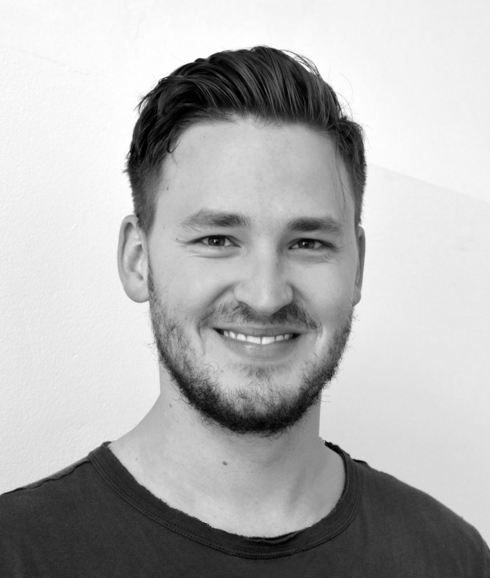Vara, a Berlin, Germany-based provider of an AI breast cancer screening platform, has just announced a €4.5m extension funding.
In conjunction with the announcement, Jonas Muff, the CEO of the company, answered our questions about Vara, the product they provide and what they want to solve through it, the funding itself and future plans.
Driven by a vision to increase global access to high-quality healthcare, Jonas has dedicated his career to transforming healthcare with artificial intelligence. To realize this vision, he works every day to create an environment at Vara where his team can challenge the status quo, while challenging themselves to discover new possibilities in science. Muff was born and raised in Switzerland. He studied business in St. Gallen (HSG). Soon after, he grew START, Europe’s leading student conference for entrepreneurship to over 2,000 participants. Later, Jonas joined Europe’s leading venture studio, Merantix, as one of the first employees.
Let’s speak about the company. Which is the market problem do you want to solve? Which is the real opportunity?
Jonas: More than 685,000 women die each year from breast cancer around the world.
Vara’s mission is to find every deadly breast cancer early – because if breast cancer is detected early, (1) survival rates increase by more than 60 percentage points when diagnosed at stage I compared to later stages (2) treatment costs are lower and less invasive and (3) life quality increases significantly.
800 million women are currently at risk of developing breast cancer, many of which will not get access to suitable screening. We envision a world where cancer screening is accessible for everyone, regardless of geography or background.
To accomplish that, we have developed a breast cancer screening platform with Artificial Intelligence at its core. It allows local radiology clinics to make better use of their existing mammography scanners to provide high-quality and reliable breast cancer screening at much lower costs – proven by leading and globally accepted clinical evidence.
How does it work? Which are the main features?
Jonas: Vara is unique because we’re approaching the problem holistically – which is required to establish breast cancer screening in developing markets in a cost-effective and scalable way:
● We help our partners raise awareness and provide education to more women and remove the barriers that prevent them from accessing effective screening (via Vara’s strong medical brand, its corporate partnerships and clinician network).
● Our AI decision referral pathway (published in Lancet Digital Health and developed in Germany) augments our partners’ radiologists, such that they can screen more women and achieve better efficacy.
● The Vara platform navigates the entire screening workflow, from appointments to the follow-up after screening (incl. real-world evidence monitoring).
What are the features differentiating the product from competitors?
Jonas: Other AI companies focus exclusively on the algorithm, which is too narrow to bring screening to previously underserved populations. Vara goes much beyond the algorithm and creates an entire ecosystem around it. For example, we take an active part in supporting our partner clinics to raise awareness of breast cancer screening. Be it with partnerships with local NGOs, gynaecologists, and other community leaders or through social media campaigns.
Moreover, we take an active role in creating health plan benefits opportunities by directly
providing mammograms powered by Vara to large employers or institutions – making Vara’s approach completely unique.
You just raised a new funding round. Please, tell us something more about it…
Jonas: Vara is backed by Merantix, Europe’s first AI venture studio which is backed by limited partners such as SoftBank. Vara has raised a Series A round, the recent extension of which puts the overall round at EUR 11M. The round was led by VI Partners, and some of our previous investors including the EQT Foundation.
What’s your medium-term plans?
Jonas:
1. Ultimately, our vision is that breast cancer screening is provided to every woman at risk. For this, we’ll need to bring the health systems and bodies that fund screening (e.g. insurance companies) on board which will help us to roll-out breast cancer screening at a wide scale. For this, we need to be able to demonstrate the health economic return on investment we’re able to deliver to healthcare systems – which requires prospective, real-world evidence.
In Germany – where we already work with 30% of the screening market – we have therefore launched the PRAIM study, a prospective, real-world observation study that aims to prove the non-inferiority of our decision referral AI pathway on a nationwide scale. The PRAIM study is the first of its kind worldwide and by far the largest ever prospective study conducted. By June 2023, we’ll have included 400.000 women. PRAIM is the foundation for future studies to evaluate health economic endpoints both in Germany and the emerging world. The study is led by Prof. Dr. Alexander Katalinic, Director of Social Medicine and Epidemiology at the University of Lübeck and scientific advisor to the German Mammography Screening Program.
2. The second north star is to continue reaching more women in Mexico, where we have launched 5 Vara-powered clinics together with Mamotest such in Monterrey and other regions in Mexico. Hundreds of women are screened every week and we are very focused on launching further clinics and growing the ecosystem in Mexico, which was joined by large corporations as well as NGOs such as ProMujer. We launched in Mexico this year but already see exciting interest and support coming from large international Corporations.
3. We are launching later this year in Egypt and India too and are excited to announce very soon what we have been working on in the past months!
4. We’re also working on expanding our AI technology to other modalities, starting with 3D mammography (tomosynthesis) to be able to provide the best possible screening quality to women with dense breast tissue.

